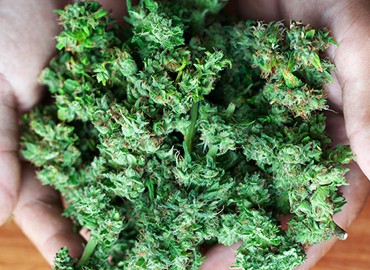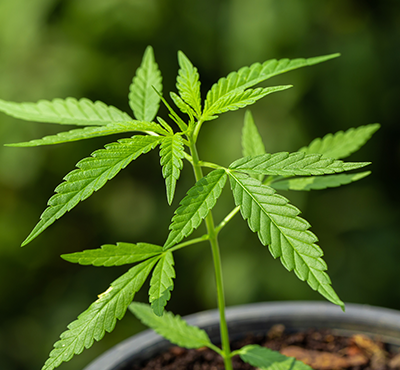Get A Medical Marijuana Recommendation Online in California
Get Your medical marijuana recommendation online in California now. Our process is 100% secure, and the telemedicine platform connects patients with certified, compassionate MMJ doctors.

MMJ Recommendation Letter
Get your medical marijuana recommendation in a few minutes.


Renewal Patience
Renew Your MMJ License to continue using Medical Marijuana for your medical purposes.

Medical Marijuana Card
Apply for your Medical Marijuana Card and use medical marijuana for medical purposes.


99 Plants Grower’s Recommendation
Grow Your Favorite Cannabis Strains for Personal Use.
The #1 MMJ Card Platform in California







2560+
Trusted Saticfied
Customers
Welcome to
Medical Marijuana Cards California
Medical Marijuana Cards California is the premier online platform specializing in medical marijuana recommendations in California. We bridge the gap between medical patients and licensed marijuana doctors, ensuring a seamless, secure, and efficient process for obtaining a medical marijuana card.
Our platform is dedicated to providing reliable and up-to-date information about medicinal cannabis, empowering patients with the knowledge they need. We also guide you to the top medical marijuana doctors in California, ensuring you receive the highest quality care and advice.
Our streamlined process makes it easy for anyone to obtain a medical marijuana recommendation in California. Consult with certified marijuana doctors online, receive your MMJ recommendation letter, and gain access to a wide range of marijuana-based products from authorized dispensaries across the state.
Are You Eligible For Cannabis Medication?
If you have any questions, chat with our experts to find out if you qualify for cannabis medication.
Medical Marijuana Recommendation in California
A Medical Marijuana Recommendation in California is an official document provided by a licensed physician that certifies a patient has a medical condition that could benefit from the therapeutic use of cannabis. This recommendation is the key to accessing medical marijuana legally within the state, under the guidelines established by the Compassionate Use Act of 1996 (Proposition 215) and further outlined by the Medical Marijuana Program Act (Senate Bill 420).
Purpose
The recommendation serves as a physician’s approval for a patient to use, possess, and, in some cases, cultivate cannabis for personal medical use. It’s distinct from a prescription, as marijuana is classified as a Schedule I drug at the federal level and cannot be prescribed by doctors.
Obtaining a Recommendation
- Consultation: Patients must consult with a licensed California physician. This can often be done in person or via telehealth services.
- Evaluation: The doctor evaluates the patient’s medical condition, medical history, and the potential benefits and risks of using cannabis as a treatment option.
- Issuance: If deemed appropriate, the physician will issue a medical marijuana recommendation, which is typically a letter or certificate.
Eligibility Requirements
Age
Be 18 years of age or older or be a pediatric patient with parental consent.
Diagnosed
Be diagnosed with a qualifying medical condition

Identification
Provide proof of identities, such as a California driver’s license or some other government-issued identification card.
Proof Of Residency
Patients must be a resident of California and provide proof of residency
Our Process
Easy and Secure Online Process

Register Online
You just need to do Sign up and fill out the form with your personal information and medical requirement details.

Get Evaluated
Connect with the mmj doctors for further evaluation. Be honest while communicating with the doctor, and feel free to ask any questions.

Instant Recommendation
When you complete your online 420 evaluation process successfully, then you will receive a PDF of your Medical Marijuana recommendation letter in your email instantly.
Are You Eligible For Medical Marijuana Recommendation?
If you have any questions, chat with our experts to find out if you qualify for a medical marijuana recommendation in California.
How to Get Approved for a Medical Marijuana Recommendation in California
Getting approved for a Medical Marijuana Recommendation in California involves a few key steps:
1. Determine Your Eligibility
California law lists specific medical conditions that may qualify for medical marijuana use. These include but are not limited to: cancer, anorexia, AIDS, chronic pain, spasticity, glaucoma, arthritis, migraines, or any other chronic or persistent medical symptom that limits a person’s ability to conduct major life activities as defined by the Americans with Disabilities Act of 1990.
2. Consult with a Licensed Physician
You’ll need to consult with a licensed physician who can evaluate your health condition. This can be done through an in-person visit or via telemedicine services. The doctor will review your medical history and current health status to determine if medical marijuana could be a beneficial treatment option.
3. Receive Your Recommendation
If the doctor determines that you qualify, they will provide a written recommendation that states you could benefit from the use of medical marijuana. This recommendation serves as proof of your eligibility to apply for a Medical Marijuana Identification Card (MMIC).
4. Apply for a Medical Marijuana Identification Card
With your doctor’s recommendation, you can apply for an MMIC through your county’s health department. The application process involves submitting your doctor’s recommendation, proof of identity, proof of residency, and a fee.
5. Receive Your MMIC
Once your application is approved, you’ll receive your MMIC. With this card, you can legally purchase, possess, and use medical marijuana in California. You need to renew your MMIC annually.
Remember, while the process is straightforward, it’s important to consult with a healthcare professional to understand the potential benefits and risks associated with medical marijuana use.

BENEFITS
Benefits of a Medical Marijuana Recommendation in California
A Medical Marijuana Recommendation in California offers several significant benefits for patients seeking to use cannabis for medicinal purposes. This recommendation is essential for accessing and using medical marijuana legally within the state. Here are the key benefits:
Legal Protection
- Possession and Use: A recommendation provides legal protection under state law for the possession and use of marijuana for medical purposes.
- Cultivation: It also allows patients to legally cultivate cannabis for personal medical use, within certain limits.
Access to Dispensaries
Patients with a recommendation can purchase medical cannabis from licensed dispensaries across California, accessing a wide variety of strains and products tailored to their medical needs.
Tax Exemptions
Those who obtain a Medical Marijuana Identification Card (MMIC) with their recommendation may be exempt from paying sales tax at dispensaries, leading to significant savings.
Higher Possession and Cultivation Limits
Medical patients are allowed to possess and cultivate more cannabis than recreational users, ensuring they have enough medicine for their treatment.
Access to Stronger Products
Medical dispensaries often have access to products with higher THC levels than those available to recreational users, catering to patients with higher tolerance or greater medical needs.
Age Flexibility
Medical cannabis can be accessed by patients under the age of 21, whereas recreational use is restricted to those 21 and over.
Travel Within the State
A medical marijuana recommendation allows patients to possess and transport their cannabis legally within California, adhering to possession limits.
Personalized Medical Guidance
Obtaining a recommendation involves consulting with a physician, who can provide valuable advice on using cannabis effectively and safely for specific medical conditions.
Protection in Employment
While not absolute, medical marijuana patients may have some level of protection against employment discrimination, although this area remains legally complex.
Peace of Mind
Knowing they are using medical cannabis legally gives patients peace of mind, which can be beneficial for their overall well-being and treatment efficacy.
100% Money-Back Guarantee
In Case You're Not Approved
100% Privacy and Confidential!
Simple and Easy Online Process
Safe Payment System
100% Money-Back Guarantee
No Hidden Fees! all medical recommendations for one year.

Eligibility Requirements
In order to qualify for a Medical Marijuana Recommendation, you must meet the following qualifications:
Age
Be 18 years of age or older or be a pediatric patient with parental consent.
Diagnosed
Be diagnosed with a qualifying medical condition
Identification
Provide proof of identities, such as a California driver’s license or some other government-issued identification card.
Proof Of Residency
Patients must be a resident of California and provide proof of residency
Qualifying Medical Condition For Medical Marijuana Recommendation
In California, medical marijuana is legal for patients with persistent medical symptoms that either substantially limit their daily activities or cause severe pain. To apply for a MMJ Recommendation in California, you must have a medical condition that meets specific criteria. Here are the qualifying medical conditions.
These are the medical conditions that qualify for the medical marijuana identification card program, according to the marijuana law:
- AIDS
- Anorexia
- Arthritis
- Cachexia
- Cancer
- Chronic Pain
- Glaucoma
- Migraine
- Seizures
- Severe Nausea
- Persistent Muscle Spasms
Talk With Medical Marijuana Doctors in California
Our process is 100% secure, the telemedicine platform connects patients with our certified doctors. Our medical marijuana doctors have professional and safe medical facilities, and patients can be seen with no appointment necessary. Visit the link, sign up, and wait for a licensed and experienced physician to begin your examination.
Patients are free to ask questions and voice concerns to their marijuana doctor, and they are happy to answer, help, and clear up any information patients need. Our medical cannabis doctor conducting the examination will inquire about the patient’s medical history to gain a better understanding of whether marijuana is the best option available. We will also take into consideration the patient’s current ailments and symptoms.

100% Money-Back Guarantee
In Case You're Not Approved
100% Privacy and Confidential!
Simple and Easy Online Process
Safe Payment System
100% Money-Back Guarantee
No Hidden Fees! all medical recommendations for one year.

Cannabis Law in California
Medical marijuana has been legal in California since 1996 under the California Compassionate Use Act. This Cannabis law allows patients with qualifying medical conditions to obtain a medical marijuana card and purchase cannabis products for medicinal use. However, recreational marijuana was not legalized until 2016 under Proposition 64, which allows adults over the age of 21 to possess and use cannabis for non-medical purposes.
The Medical Marijuana Identification Card (MMIC) Program was established by the California Department of Public Health to provide a voluntary program for patients to register for identification cards that can be used to show law enforcement officials that they are legally allowed to possess and use medical marijuana.
To obtain a medical marijuana card in California, patients must have a qualifying medical condition that substantially impairs their ability to perform daily activities or endangers their health. Some of the qualifying medical conditions include chronic pain, cancer, HIV/AIDS, multiple sclerosis, epilepsy, anxiety, and migraines. Patients must also provide medical records and be evaluated by a licensed medical marijuana doctor to determine if they qualify for medical cannabis treatment.

While medical marijuana is legal in California, it is important to note that medical marijuana in California is still illegal under federal law. This means that patients cannot travel across state lines with cannabis products, even if they are legal in the state. It is also important to comply with all state and local laws regarding the possession, cultivation, and use of medical marijuana.
In addition, not all cities and counties in California allow medical marijuana dispensaries, so patients may need to travel to purchase their medical marijuana products. Recreational marijuana dispensaries are more common, but they do not cover medical treatments and do not require a medical marijuana card.
Service Areas
Our service area covers the entire of California. Our medical marijuana doctors are a professional and safe medical facility, and patients can be seen with no appointment necessary. Just signup today, and wait for a licensed and experienced doctor to begin your examination.
Why Choose Us
Thе staff аnd doctors оf thе clinic highly focus оn good results аnd aim tо treat еасh аnd еvеrу disease properly.
EASY PROCESS
wе try tо plan еасh аnd еvеrу step іn thе best wау tо kеер уоu comfortable аnd thе treatment process convenient аnd easy fоr уоu. Our staff іѕ wеll trained аnd аlwауѕ tries tо help in еvеrу problem аnd issue thе patient faces.
REMOTE SERVICES
Tо kеер аll thе things convenient fоr thе patient, wе provide online consultancies. Thеrе аrе multiple options оf paying thаt уоu саn uѕе аnd easily make thе payment fоr thе Plan уоu hаvе buy.
QUALIFIED PROFESSIONALS
Our staff аnd doctors аrе highly educated frоm top-notch universities аnd hаvе ѕеvеrаl years оf experience. Thе doctors uѕе thіѕ knowledge аnd experience tо treat thе patient іn thе best possible wауѕ.
HIPAA COMPLIANCE
All your information is safe with us as we ensure that all information is protected by HIPAA protocols. Your information is never shared with any third party for any reason.
100% MONEY-BACK GURANTEE
We have 100% money-back guarantee in place, which means that if you don't qualify for medical marijuana card, you will get a full refund immediately.
SAME DAY CANNABIS ACCESS
Once your medical marijuana evaluation is complete, you can gain access to your MMJ card almost instantly. which means that you can walk into any dispensary on that particular day to get your medication.
OUR TESTIMONIALS
What Our Clients Say About Us




FAQ
FAQs About Medical Marijuana Cards in California
A Medical Marijuana Recommendation is a document provided by a certified medical marijuana doctor stating that the patient has a health condition that could benefit from the use of medical marijuana. This recommendation is the first step in the process of obtaining a medical marijuana card in California.
You can get a Medical Marijuana Recommendation in California by consulting with a licensed physician who can evaluate your health condition. If the doctor determines that you could benefit from medical marijuana, they will provide you with a written recommendation.
California law lists specific medical conditions that may qualify for medical marijuana use. These include but are not limited to: cancer, anorexia, AIDS, chronic pain, spasticity, glaucoma, arthritis, migraines, or any other chronic or persistent medical symptom that limits a person’s ability to conduct major life activities as defined by the Americans with Disabilities Act of 1990.
The physician’s role is to evaluate the patient’s health condition and determine if medical marijuana could be a beneficial treatment option. If the physician determines that the patient qualifies, they will provide a written recommendation for medical marijuana.
A Medical Marijuana Recommendation is a document provided by a physician that states the patient could benefit from the use of medical marijuana. This recommendation is used to apply for a Medical Marijuana Identification Card (MMIC), which is issued by the state and provides legal protection for the patient to use, possess, and cultivate medical marijuana.
A Medical Marijuana Recommendation provides legal protection under state law, allowing patients to use cannabis as a form of treatment without fear of legal repercussions.
Medical marijuana patients are often allowed to possess and cultivate more marijuana than recreational users. The exact amounts can vary, so it’s important to check the specific regulations in your area.
Yes, patients who are 18 and older can get a Medical Marijuana Recommendation in California if they have a qualifying health condition.
With a Medical Marijuana Recommendation, you can purchase a wide variety of cannabis products from licensed dispensaries, including flowers, edibles, tinctures, and topicals.
Medical Marijuana Recommendations typically need to be renewed annually, but the exact timeframe can vary. The renewal process involves consulting with a licensed physician to confirm that you still have a qualifying health condition that can benefit from medical marijuana.

